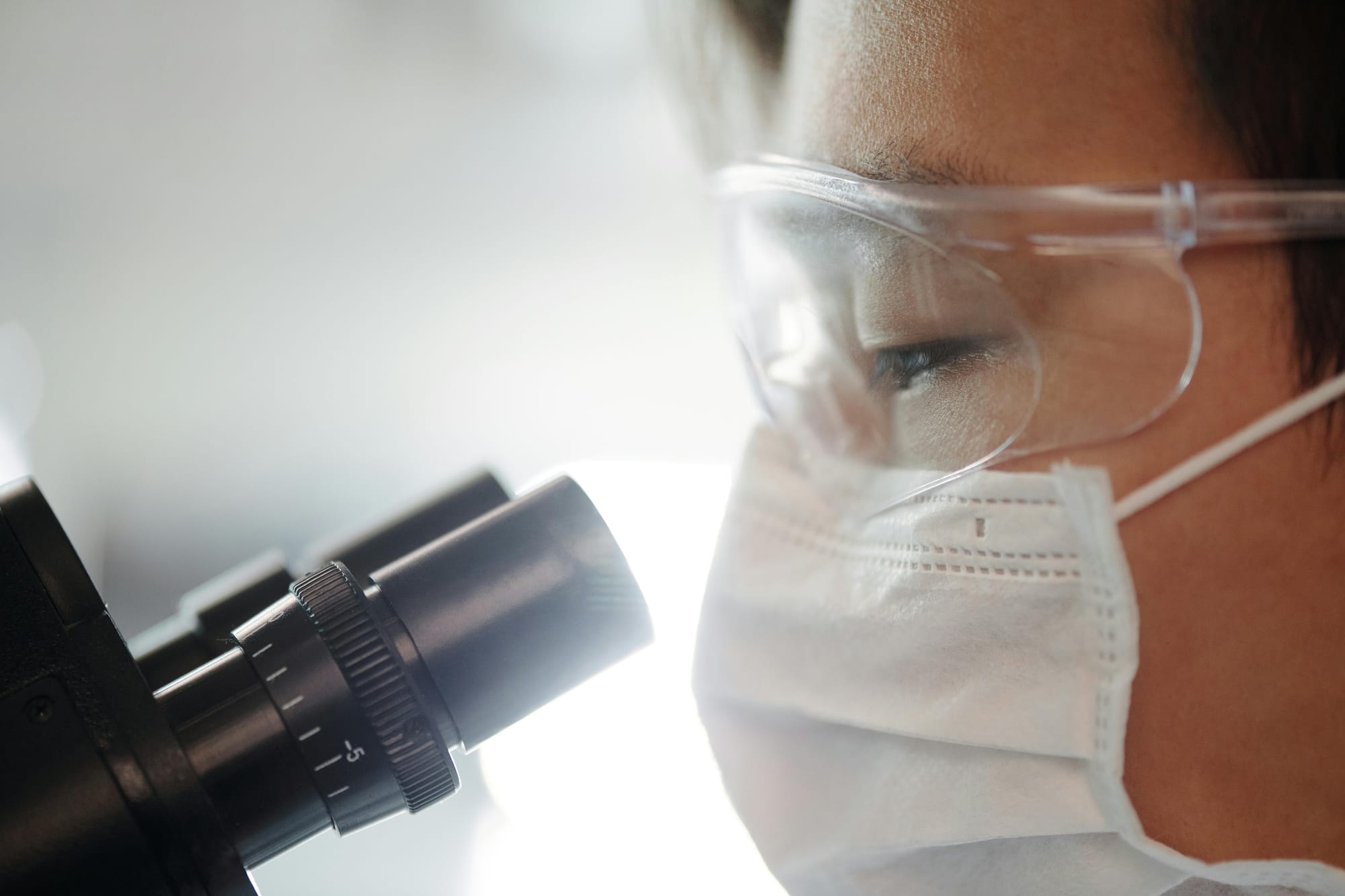Dr Casey Means says there are 7 important biomarkers you need to pay attention to when you get blood work done that really give you a snapshot of your health. What are they?
Go to your Doctor and ask for these basic tests that everyone should know and are free on an annual physical:
- Fasting Glucose
- Fasting Triglycerides
- HDL Cholesterol
- Hemoglobin A1C
- Total Cholesterol
- Waist Circumference
- Blood Pressure
We use these biomarkers to check if you are Metabolically dysfunctional, and they have shown that around 90% of Americans and sub-optimal. So if you can improve these, then you can improve your overall health.
What Does Being Metabolically Dysfunctional Mean?
Dr. Robert H. Lustig, who is a pediatric endocrinologist and author, says metabolical dysfunction includes a range of issues that happen when chemical reactions in your body try converting the food you eat into energy - these issues can lead to type 2 diabetes and heart disease.
What does Dr Means say your biomarkers tell you about your health?
What numbers are you looking for to know if you are optimal or not?
You are optimal if your levels for these biomarkers are:
- Fasting Glucose - less than 100
- Triglycerides - less than 150
- HDL Cholesterol - above 40 for men, above 54 for women
- Hemoglobin A1C - less than 5.7%
- Total Cholesterol to HDL Cholesterol Ratio less than 3.5:1
- Waist Circumference less than 35 inches women, 40 inches men
- Blood Pressure less than 120 over 80
If you are not in these ranges, then you are not metabolically healthy.
The good news is that these Biomarkers are easy to change in 1 - 2 months with simple lifestyle habit changes.
What Triglycerides Really Mean?
Dr. Means says the key to understand about the triglycerides is that having high levels does not mean we are eating too much fat. Triglycerides are a storage form of excess carbohydrates in the blood.
What does it mean when our test results show we have High Triglycerides?
Reasons your Triglycerides could be high when you test:
- You didn't fast well enough when they were doing the blood test
- Pre-diabetic or Diabetic and you need to get your blood sugars down
- Overweight and Obesity
- Genetic high Triglycerides
- Could be caused by Kidney Disease, Liver Disease
- thyroid disease
- Physically inactive
- Eating Foods with high glycemic index before the test
- Variability when you tested - fasted longer 1 time vs second time testing.
Why do High Triglycerides occur?
If the mitochondria can't process Glucose or fatty acids to ATP (energy) very well in the cell, they are going to block their entry into the cell. So now the Glucose is rising in the blood stream and causing major health problems, so the body converts it to triglycerides to store them in the body to try and get back into balance.
So when Fasting Glucose is high, and Triglycerides are high that is a sign that there is a problem inside of your cells.
A sign for Mitochondria dysfunction and chronic overnutrition: You are eating too much, and consuming too much sugar.
What is Your Mitochondria?
According to former president of the National Academy of Sciences Dr. Bruce Alberts, your mitochondria is:
It's the powerhouse of the cell - because mitochondria produce the energy that's needed for various cellular functions, which plays a crucial role in metabolism and overall cell health.
What is Glycation?
We mentioned in the last issue when the Glucose is sitting in the blood stream, glycation can occur, but what is it?
Biologist and researcher Dr. Berg says that glycation is a process where sugar molecules attach to proteins or lipids, which can lead to harmful effects in the body, including aging and various diseases.
What is A1C hemoglobin?
What does Dr. Means say this test reveals about your health?
The A1C is a marker that shows how many hemoglobin molecules (that carry oxygen in the red blood cells) have sugar stuck to them and that's glycation.
So that's why the A1C is a percentage, as it's the percentage of Hemoglobin molecules that are glycated (sugar stuck to them). Remember we want less than 5.7%.
What Role Does Sugar Play?
In a later week, we'll go into detail about sugar in a dedicated article. But how does sugar affect your body?
The Hemoglobin A1C Test gives an average of your blood sugar levels over the past 90 - 120 days. If that average is higher, it's a sign that cells are rejecting glucose and rising in the blood stream.
When the cell becomes insulin resistant, which is the compensating when your Mitochondria is dysfunctional, the insulin will rise in the blood. Because the cells are insulin resistant, the body will try and crank out more insulin to try and force the sugar into the cells.
Insulin is one of the key activators for Nitric Oxide which is the molecule that relaxes blood vessels. So when we're not responding to that insulin signal we end up getting less Nitric Oxide which then will raise the blood pressure.
With these basic tests we can see that maybe your body is underpowered, and you have a Mitochondrial issue. The powerhouse is not working properly.
What happens when you have too much Insulin?
When your cells are insulin resistant and not taking in insulin, there isn't the signal back to the pancreas that there is enough insulin so it keeps getting produced and causing a lot of problems including Diabetes.
What are we looking for in these tests to know we may be Metabolically Dysfunctional?
Pay close attention to those Triglycerides and Blood Glucose levels, even if they are within normal range, but both on the high end of normal it should suggest that y0u are Metabolically Dysfunctional.
What other more advanced health tests should we be asking to get done?
- Checking the autoimmune biomarker
- Checking for high levels of CRP and Inflammation which is the biggest driver of Aging.
- Checking levels of ApoB which is the most important Cholesterol biomarker.
- Checking nutrient difficiencies.
To check for inflammation, you want your CRP (C-Reactive Protein) less than 1, so anything over that you may have
- Vascular Inflammation
- Bacterial Inflammation
- Rheumatoid based Inflammation
- Autoimmune Disease
In later weeks, we'll go more into detail about high blood pressure, tracking your physical performance and monitoring your levels and figuring out why you are getting headaches. In the meantime, it's time to see a doctor to get my biomarkers tested.
How Do I Find a Doctor to get these Tests done?
Do you have a doctor to set up these tests? If you don't, try looking on the directory Zocdoc. You can search for local doctors in your area, and can check if they accept your insurance plan. The best thing about Zocdoc is you can filter by different specialities to find an expert to solve your specific issue - everything from mental health to dentistry to gastroenterology (gut care). You can find a doctor that has an office near you, and specializes in the health issue you are concerned about.
What does Dr Evan Levine say about ZocDoc?
What Daily Tests Can You Take to Monitor Your Health?
While doctors can monitor you using quarterly and annual tests, it's also good to check your health daily with at-home tests. From patches to bracelets, there are numerous ways to check your cardiac biomarkers, nutritional deficiencies, sleep quality, microbiome and more.
Tomorrow we'll get into some tools you can use for daily monitoring - for example, daily gut microbiome checks.




